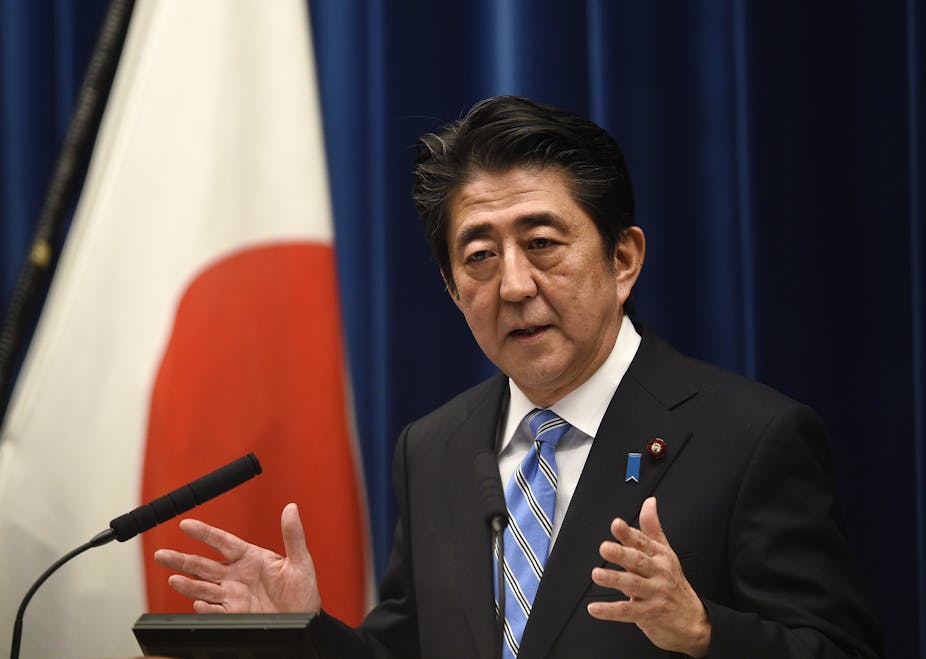Japanese Prime Minister Shinzo Abe’s decision to call a snap election for December 14 comes after what has been a rather bad week for him. Japan has slipped back into recession for the first time since 2012 and Abe has seen his popularity ratings drop below 50% for the first time.
Abe clearly believes he needs to act fast if he is to survive this crisis and avoid falling victim to the factional politics that are so often the cause of leadership upheavals. He doesn’t have to hold an election for another two years so in calling this vote, he is aiming to maximise his remaining popularity, bolster support for Abenomics and prevent a political ousting.
Japanese prime ministers are not renowned for their staying power. Factional politics feature prominently in the day-to-day running of the country and internal jostling is intensified in periods of coalition government. Abe leads a coalition government made up of his Liberal Democratic Party and its partner party, the Komeito – so he has experienced this jostling for some time.
He and his party are likely to win a majority in this December election though. The LDP currently occupies 294 out of the 480 seats of the Lower House and starts the campaign in a strong position.
The key for Abe is to ensure that the LDP’s majority is large enough to give him room for manoeuvre. The Komeito currently only holds 31 seats, while the opposition Democratic Party of Japan has 54 seats. Abe needs to urgently reduce the political tensions around him if he is to succeed in his economic reform agenda.
The prime minister is a man with a mission. He is strongly committed to consolidating his economic reforms, based around quantitative easing, fiscal stimulus and structural reform. A newly secured mandate from the electorate would give him the space to pursue his plans.
He has other goals aside from Abenomics. The disaster at Fukushima led to the closure of Japan’s nuclear reactors, and Abe is striving to have them restarted, in order to reduce the high costs of energy to Japanese consumers. Since the 2011 disaster, electricity prices have increased by dramatically and Japan remains vulnerable to external energy providers.
On the political front, Abe is keen to overturn a half century of a particularly Japanese form of pacifism. He wants to enable the country’s well-equipped Self Defense Forces to become an internationally accepted army, navy and air force. Instead of existing to defend Japan, the force would be deployable elsewhere too.
This is linked to Japan’s sense of insecurity in the region, particularly when it comes to the rise of China. Bolstering the military reconfirms Japan’s ongoing commitment to its security treaty with the United States.
Abe also wants to sign the US-led Trans-Pacific Partnership, which would establish a free trade agreement among the states around the Pacific Ocean. Japanese farmers, who have always represented a powerful political lobby in Japan, estimate that up to 90% of Japanese agriculture could be severely affected by the TPP, and Abe will have his work cut out to convince them of its value.
Without a resounding mandate for the next two years, Abe will struggle to meet these goals. He stands out as a bold leader and the electorate has supported his ambitions so far. But while he is not necessarily risking his position with the snap election, he is gambling on his ability to push through the big changes he has been seeking since the start of his premiership.

